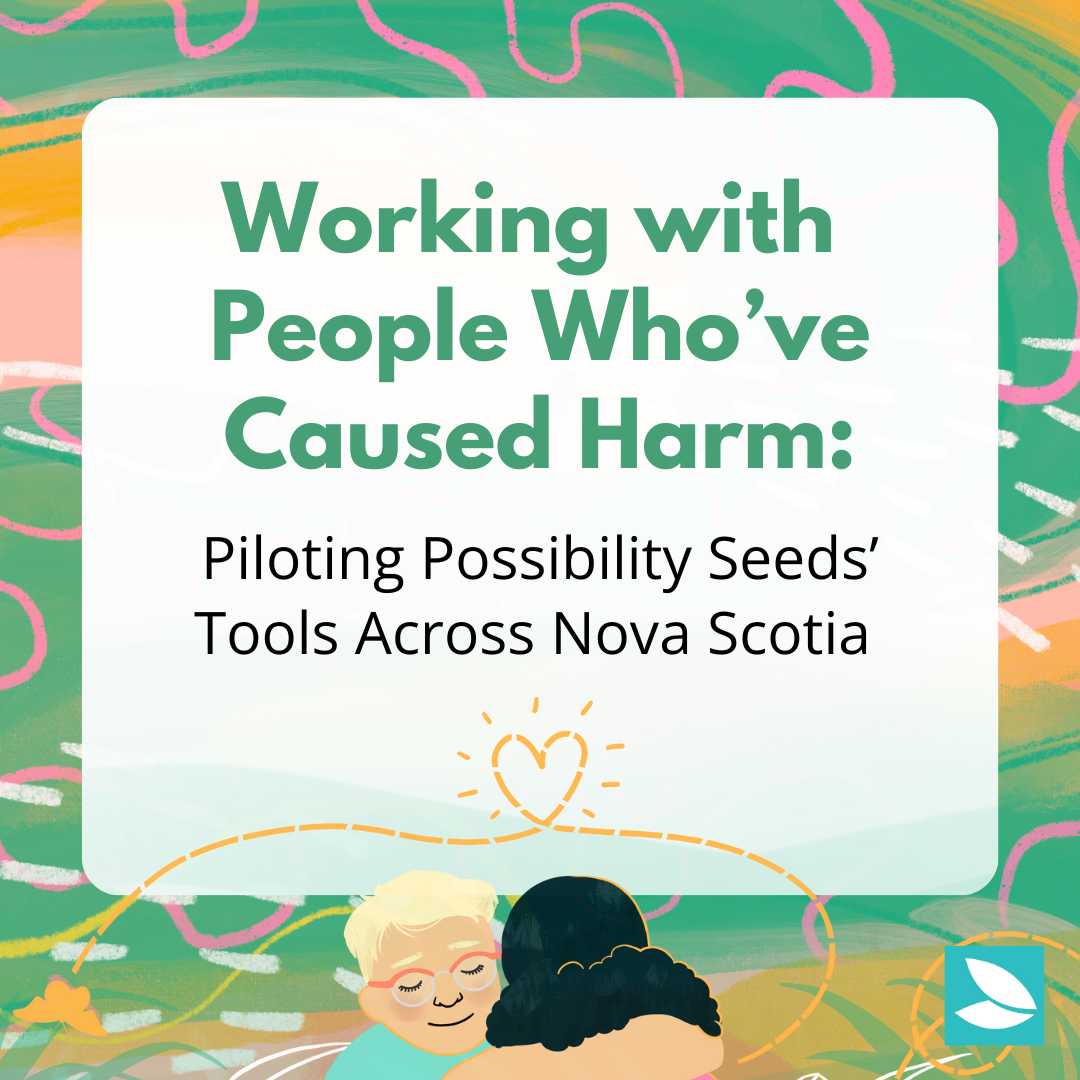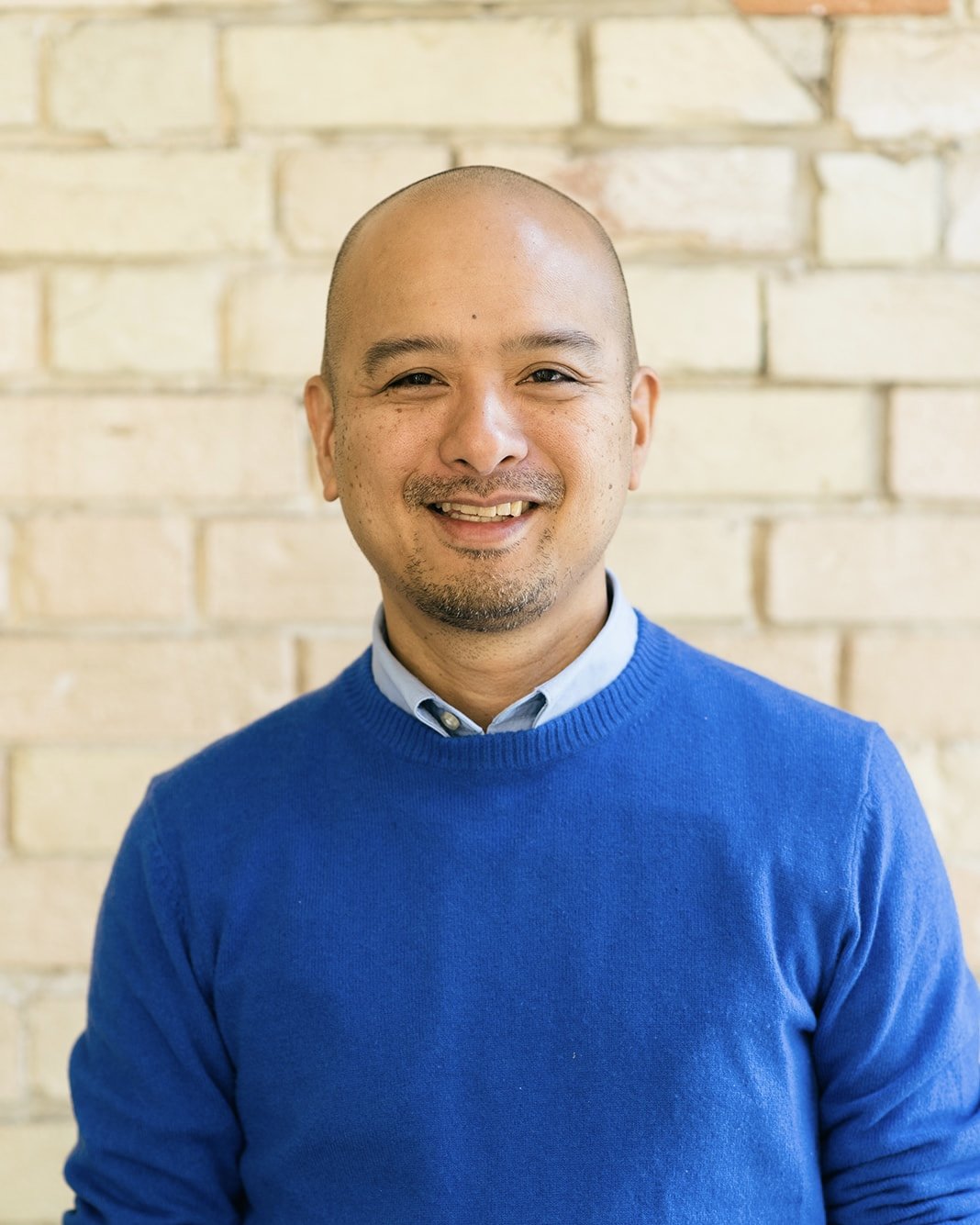Working with People Who’ve Caused Harm: Piloting Possibility Seeds’ Tools Across Nova Scotia
Written by: Dr. Jesmen Mendoza
Possibility Seeds, through its Courage to Act project, has created a variety of incredible tools and toolkits addressing issues related to responding and supporting those impacted by gender-based violence at post-secondary institutions (PSIs). Over 70 free tools exist that help guide one’s thinking and provide resources on a number of topics that range from making recommendations and suggesting resources for PSIs to addressing GBV on campus to outlining policy and legislative recommendations to protecting students from sexual harassment in experiential learning settings.
Recently, a number of these tools were given voice when a consortium of PSIs in Nova Scotia requested a training and walkthrough, for their staff and decision makers, of several tools that address working with people who have caused harm:
Self-Audit Tool for Practitioners Who Work with People Who have Caused Harm
Supporting the Whole Campus Community: A Roadmap Tool for Working with People Who Have Caused Harm
Sarah Scanlon and myself took this suite of tools and created a series of primer workshops that provided a foundation and springboard for staff and decision makers who work with this particular group of people on our campuses. These six workshops were based on restorative and transformative justice principles, which focused and framed the remainder of discussions on what accountability and responsibility-taking means, and how to implement these principles in the work with people who have caused harm. We also had discussions about how tricky the work might be, and how adopting a values-based approach can be helpful in guiding and creating clarity for staff and decision makers.
The material for all the primer workshops were drawn from the Courage to Act tools, which not only included the philosophical framework needed to work with people who have caused harm, but the exercises and reflection questions needed to help center oneself when doing this work. However, the uniqueness of the primer workshops, with what we are terming “the Nova Scotia pilot,” was more than just the learning experience and walkthrough of the various tools. Rather, it was the dialogue amongst participants as well as with myself and Sarah.
These primer workshops held meaningful discussions on why this work is important, how to help others see its importance, and how to take care of oneself when doing this type of work. Our meaningful dialogues in the primer workshop drew from the collective wisdom of all the participants as well as the facilitators. The result was participants affirming their personal commitments to doing gender-based justice work and now having the scaffolding to continue these meaningful dialogues on their own. This latter part was probably the most exciting result of the Nova Scotia pilot because this community of learners could now transform themselves into a community of practice.
If you and your institution believe that you could benefit from Possibility Seeds giving voice to any of the 70 plus tools offered, don’t hesitate to contact them.
These tools are not only informative; they can also be, as we found, transformative.
Suggested Reference: Courage to Act. (2023, October). Working with People Who’ve Caused Harm: Piloting Possibility Seeds’ Tools Across Nova Scotia. Courage to Act. www.couragetoact.ca/blog/ns-pilot
Dr. Jesmen Mendoza (he/him)
Dr. Jesmen Mendoza has been registered with the College of Psychologists of Ontario since 2008. He’s provided counselling and psychotherapy services since 1999 on a range of issues, and in a variety of settings. He is located at Ryerson University, Centre for Student Development and Counselling where he provides therapy to university students, training to psychology practicum students and consultation to faculty and staff on tricky issues. Prior to Ryerson, he has provided services in a number of social service and criminal justice settings, and applies an integrated, inclusive and positive psychology approach to all of the clinical and community work he delivers.



